- Home
- international
- news
- Inside Christiania, Europe's largest hippie commune where an open drug market is being ravaged by rising gang violence
Inside Christiania, Europe's largest hippie commune where an open drug market is being ravaged by rising gang violence
James Pasley

- In 1971, a group of squatters took over a military base in Copenhagen and called their enclave "Christiania."
- Their plan was to break away from Denmark and its laws, to stop living under a conventional property ownership model, and to legalize drugs.
For more than 50 years, Copenhagen has been home to Europe's largest hippie commune.
Freetown Christiania was formed in 1971 when about 150 squatters decided to leap a fence and take over a section of leafy military land that had been abandoned in the 1960s. They formed a commune, made their own laws, and legalized drugs.
In the decades since, countless governments have threatened and tried to end the commune, but Christiania is still going today. Its members even formed a foundation and bought the land with a bank loan in 2011.
But over the last few years, its semi-legal drug trade on "Pusher Street" has been taken over by gangs and serious drug dealers resulting in escalating violence. In May, Copenhagen's mayor offered to step in and close the drug market for good.
Here's how the commune has lasted so long and some of the challenges it's faced.
In September 1971, a group of about 150 artists, hippies, feminists and squatters took over a derelict military base at the edge of Copenhagen, Denmark, in an area called Christianshaven.
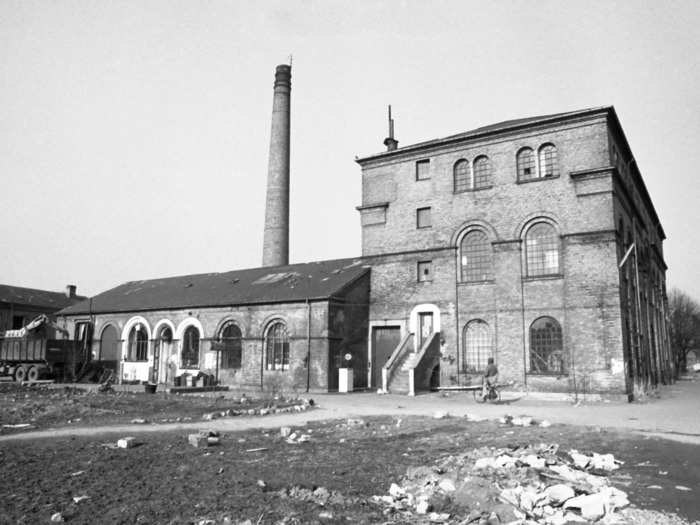
Sources: Vanity Fair, Court House News
There was no single leader. They were just a group that wanted to live differently.
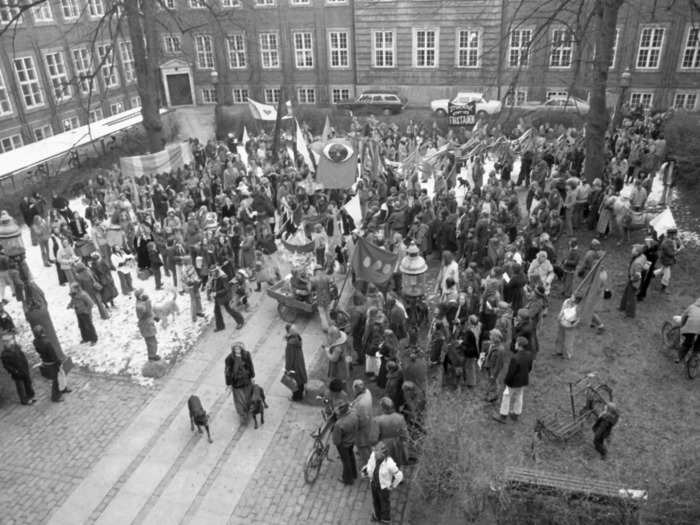
Sources: The Believer
They were angry with the government, emboldened by student uprisings in Paris and in Denmark, and acting out in response to a housing crisis.
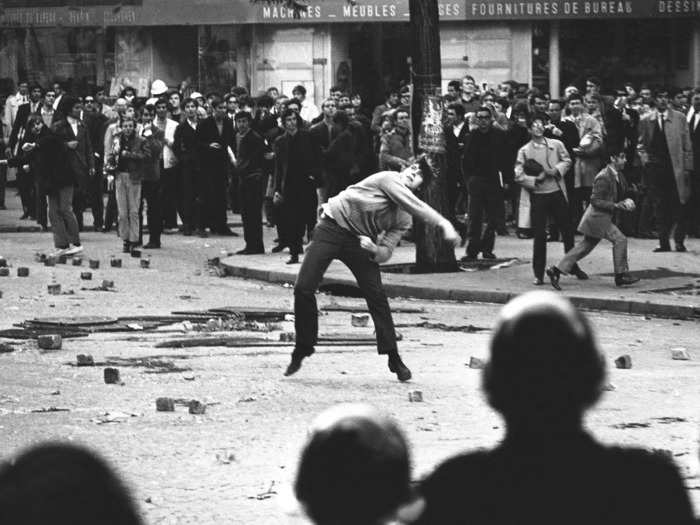
Sources: The Believer
They cut off access to roads, banned cars and liberated a leafy enclave that covered about 35 hectares of prime Copenhagen real estate. They called their commune "Christiania."
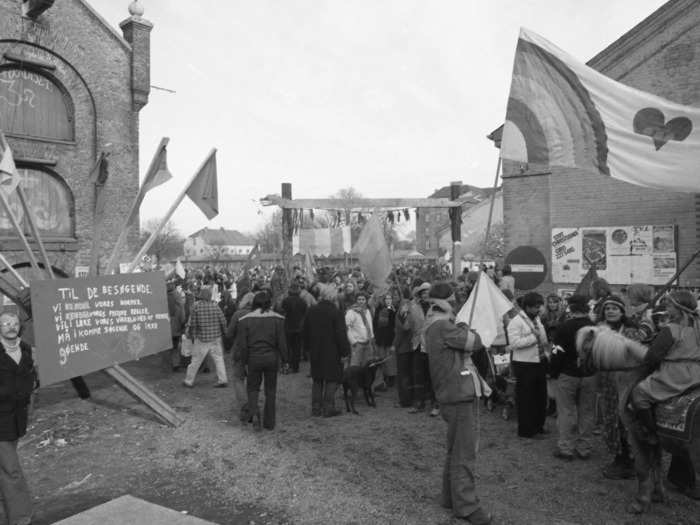
The area had been abandoned by the army in the 1960s.
Sources: New York Times, The Believer
Their plan was to live inside Denmark but outside its laws—they wrote their own constitution, printed their own money, ended conventional property ownership and legalized drugs.
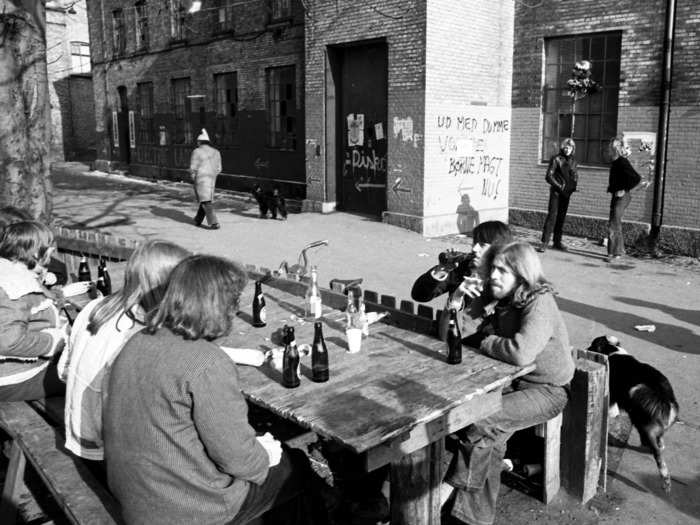
In 1974, the commune opened its first bar. It was called "Woodstock."
Sources: The Believer
The commune's guiding principle was simple—everything was allowed until it started to bother someone. One of its mottos was "Black sheep from all classes unite!"
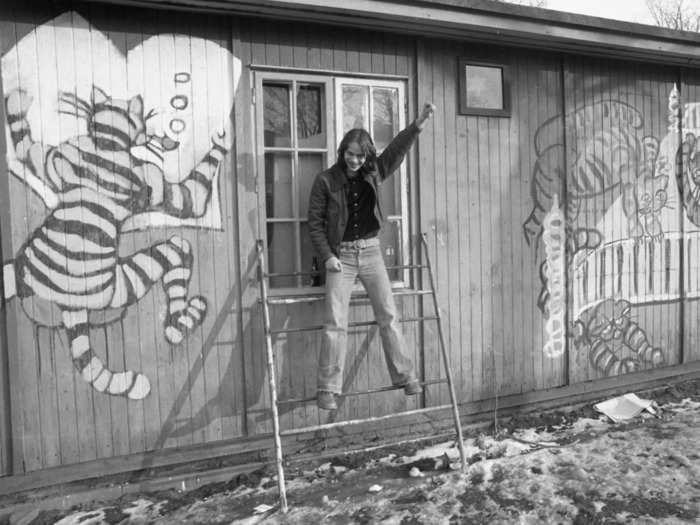
Sources: New York Times, Guardian
Early on, the police tried to clear the squatters out, but too many people were living in Christiania and no one wanted to leave. To keep the peace, the Danish government let them stay.
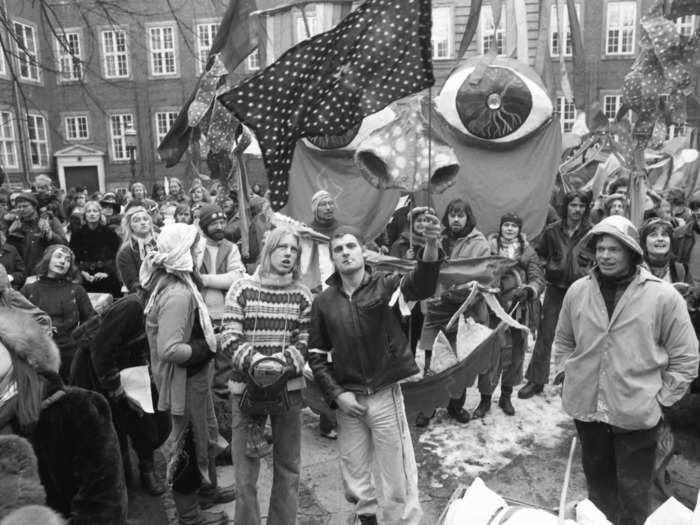
Sources: The Believer
In 1973, the government agreed to let the squatter have three years as long as they paid for electricity and water. The commune was labelled a "social experiment."
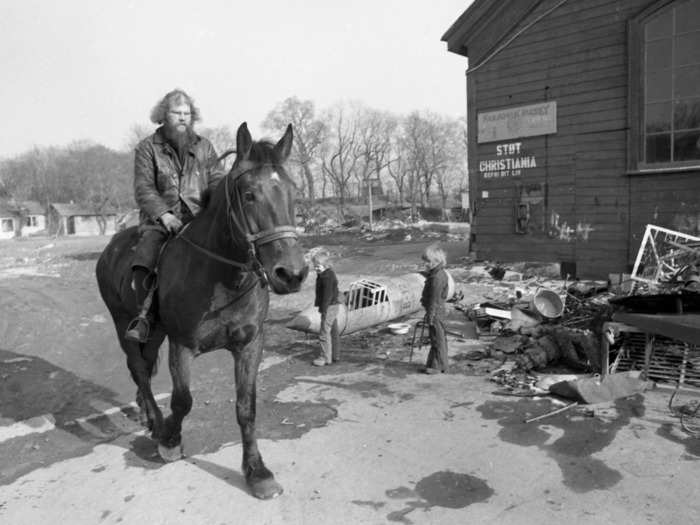
But within a year, the government tried to close it down again.
Sources: Guardian, The Believer
The government and the commune continued to wrestle for decades. By 2010 it had received a dozen eviction notices. But, according to The Believer, legal delays and deadlocks often saved the commune.
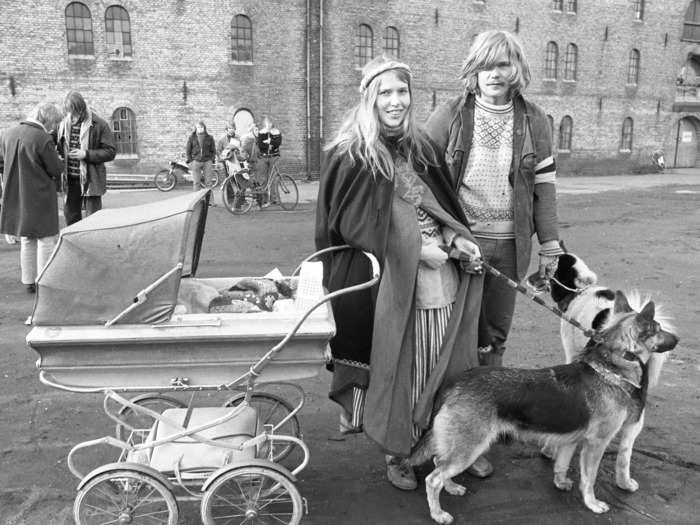
Even without a guaranteed future, it had soon developed into a self-regulating society.
Sources: New York Times, The Believer
The number of residents grew to around 1,000. An office was set up to sort out tenancies and maintain buildings. Sewer lines were laid and rundown buildings were renovated.
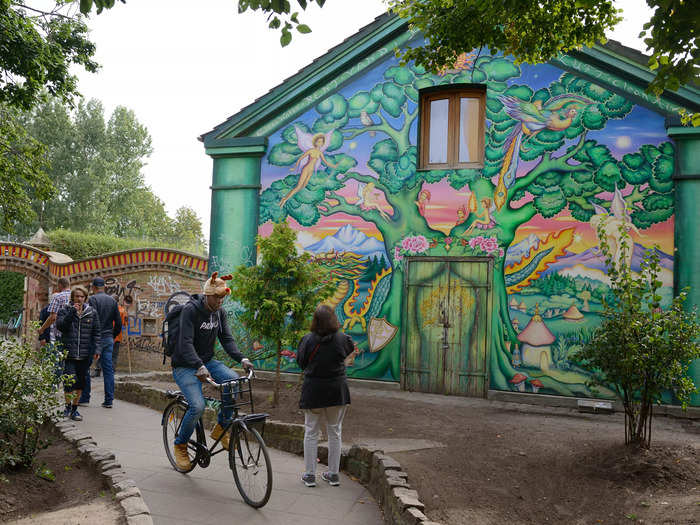
Sources: New York Times, The Believer
Protocols that were made early on continue today. For instance, residents pay a standard monthly fee, no matter how big their home was, and all decisions—from garbage disposal to tenant applications—are made at monthly meetings where a majority vote is required.
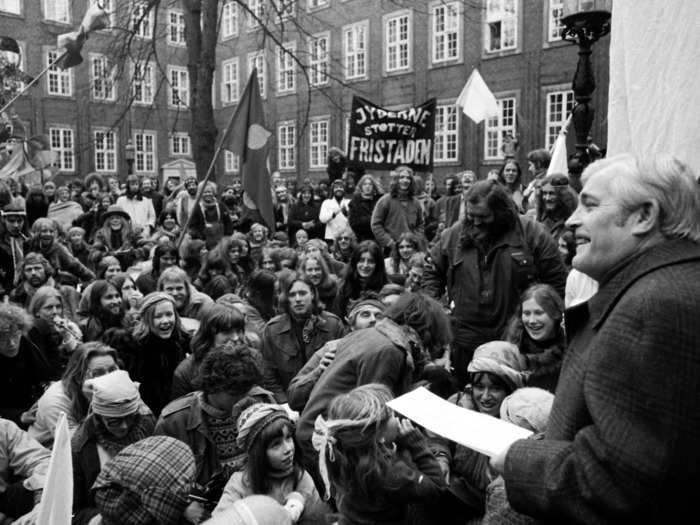
One of the crucial rules in Christiania is that no one owns property.
It follows a collective property management system, where people can't trade or sell where they live.
When someone wants to move they simply leave.
Sources: New York Times, Court House News, Guardian, The Believer
Over the years, more rules were enacted, too—like no violence, no gangs, no guns. Soft drugs like marijuana and hashish were allowed, but in 1970 hard drugs were banned.
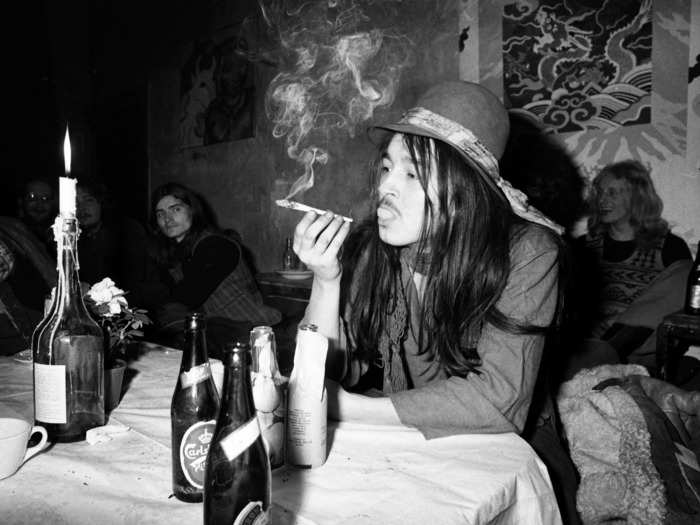
In 1985, after the police repeatedly clashed with local gangs, members of Christiania convinced the gang members to remove their patches and put down their weapons.
Sources: The Believer, Court House News
The commune soon had a reputation for its drug market, which is called "Pusher Street." The market reportedly only has two rules—no photographs and no hard drugs.
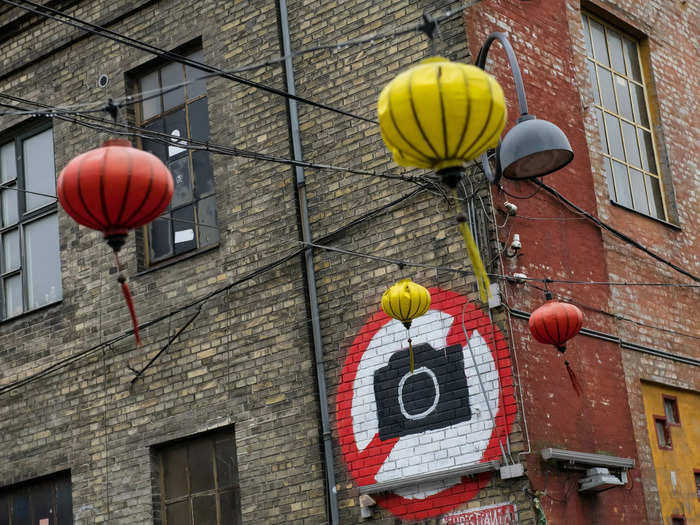
Sources: Vanity Fair, New York Times, New York Times
But Christiania wasn't all parties and drugs. Families moved there. Lulla Forchhammer, a resident and mother, told the New York Times in 1996, "It's a paradise for children."
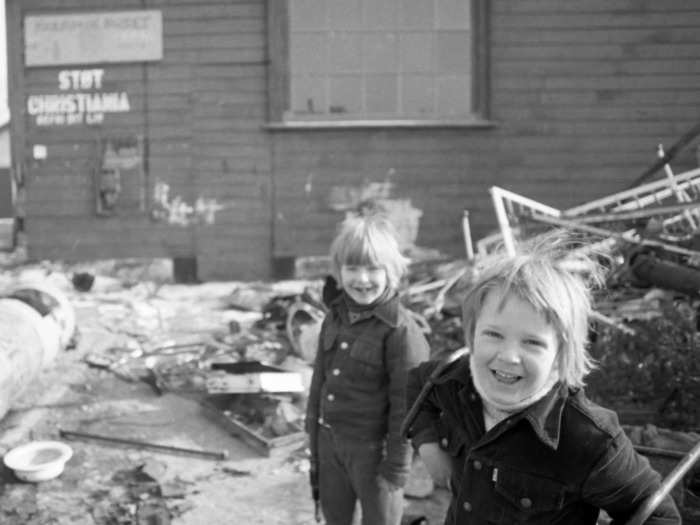
She said, "There's a lake, there are trees and gardens, and all the grown-ups look out for all the kids. You can let them run free and not worry about them."
Sources: New York Times
Peter Vestergaard, another resident, told the Guardian in 2004, 'If you want something done here you can't call an electrician or a plumber. You do it yourself or find a friend to help. I came to Christiania because I wanted to become responsible for my own life."
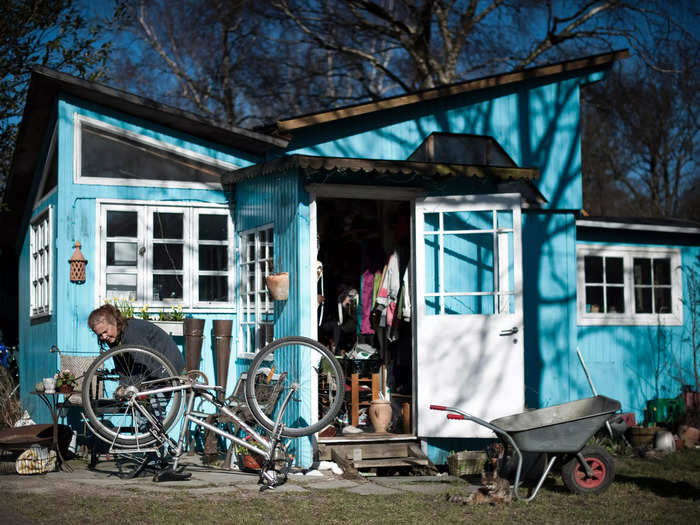
Sources: Guardian
In 1989, the Danish government passed the "Christiania Law." This gave residents a legal right to live in Christiania.
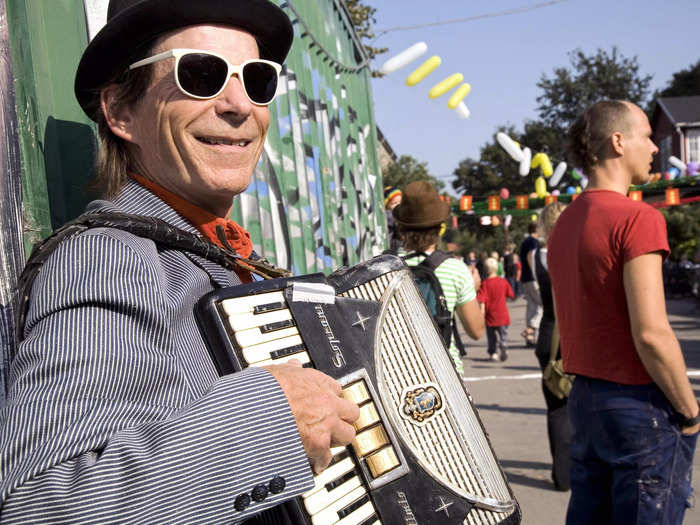
Sources: Court House News, The Believer
But even so, new governments continued to threaten the commune and the commune continued to hold its ground.
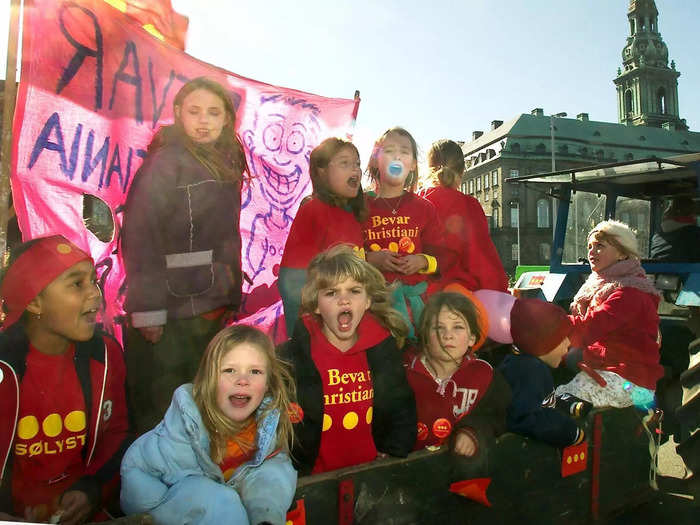
Sources: Court House News, The Believer
Things came to a head in 2011 when the government made the commune an ultimatum—either buy the land or someone else would. The commune managed to raise funds and get a bank mortgage and it has since been run by a foundation.
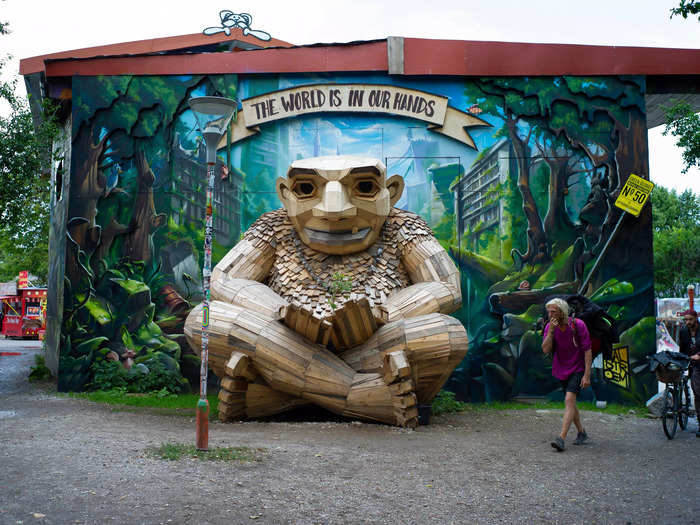
Sources: France24, Court House News, The Believer
It's become one of Denmark's most popular tourist destinations, with hundreds of thousands of people visiting each year.
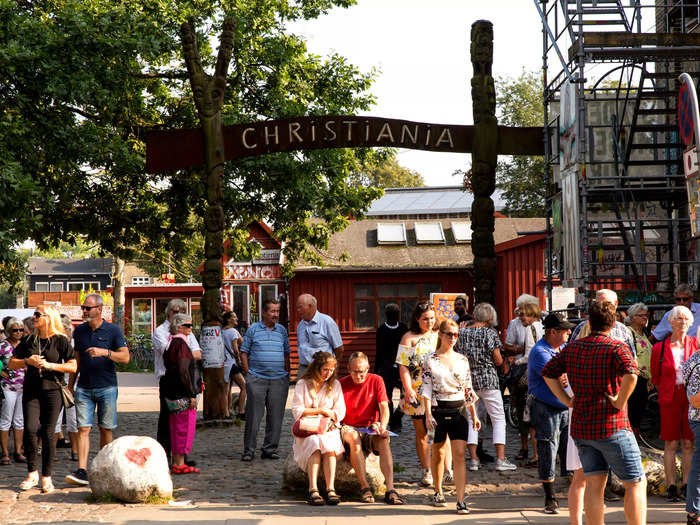
Sources: Guardian
Other than social services, hospitals and schools, it's pretty much self-sufficient. There are shops, kindergartens, restaurants and cafes. This a local grocery store inside the commune from 2012.
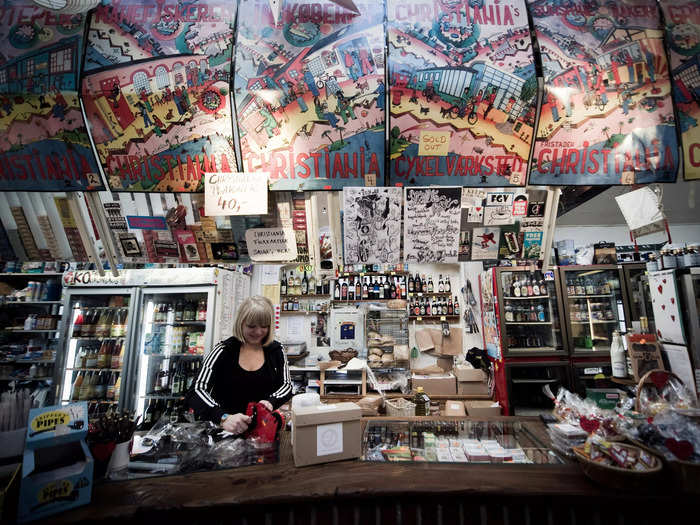
Sources: Guardian, The Believer
But it's not perfect. The requirement to reach a consensus for every issue has caused headaches for some residents. Decisions are often slow to reach, if reached at all.
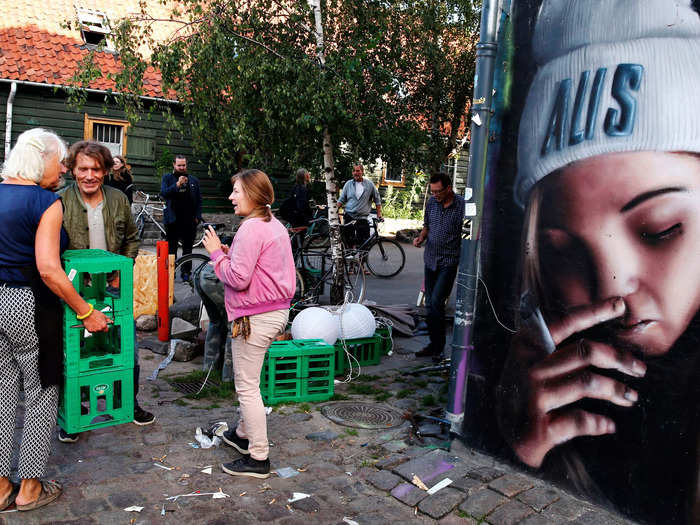
Sources: Guardian, The Believer
The way it enforces its rules has also been criticized. Because Copenhagen's police are not welcome, residents have taken things into their own hands.
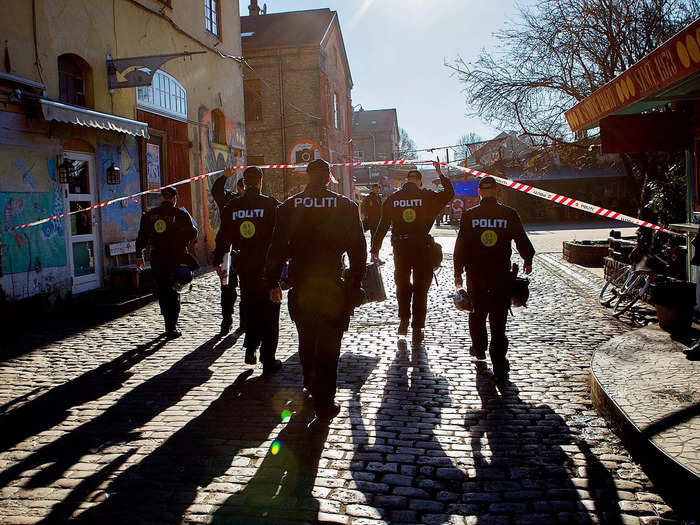
Locals have physically enforced the commune's rules—making violent threats in some cases—and forcibly removed unwanted residents.
Sources: Guardian, The Believer
But the most overt issue is its drug culture. Christiania is a desirable location because it's the only place in the country where drug sales are tolerated, if not legal.
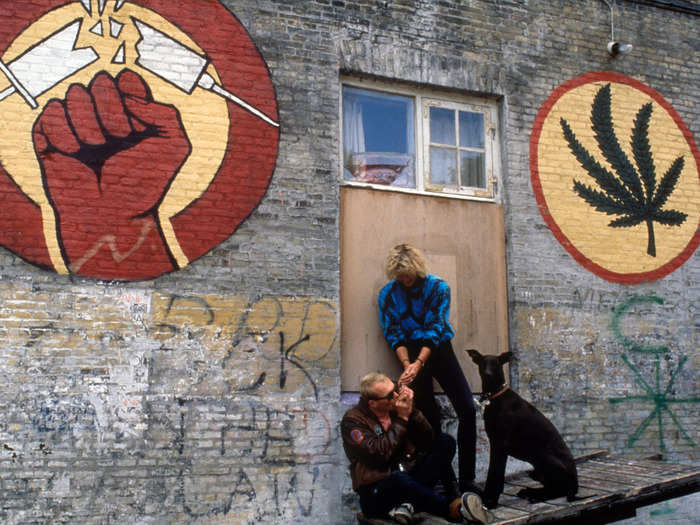
Over the years its drug market morphed into a serious business for dealers and gangs.
Despite the commune requiring cannabis sellers to be residents, gangs used locals as a front to sell their merchandise.
In the 2000s, serious drug dealers and organized crime, including the Danish Hell's Angels, moved in.
Sources: New York Times, Guardian, France24
In response, the police, who previously turned a blind eye to the drug trade, began to raid Pusher Street. By 2016, the police estimated the drug trade made $150 million in sales each year.
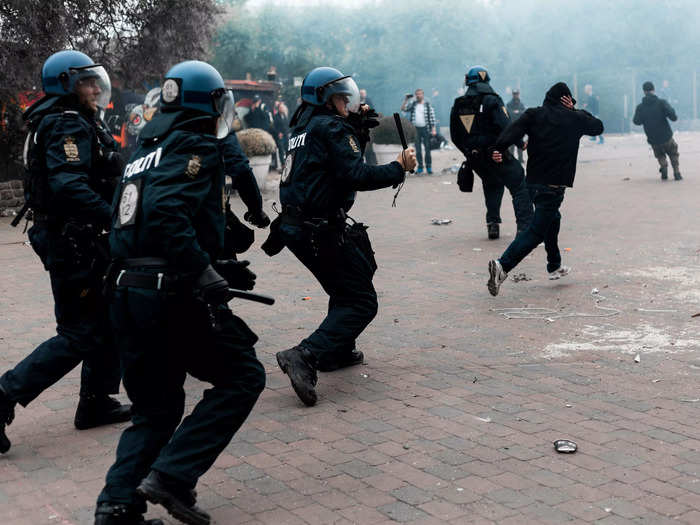
From 2020 to 2021, police seized more than 1 ton of cannabis from the commune.
With the increase in drug trade, crime on Pusher Street appeared to get worse.
In 2022, a man was shot dead and earlier this year there were a number of stabbings.
Hulda Mader, the commune's spokesperson, said the people involved weren't strangers and that they suspected gangs.
She said, "We are afraid that the situation will develop into a gang war in Christiania."
Sources: New York Times, Guardian, France24, Guardian
In response Copenhagen's mayor Sophie Hæstorp Andersen told a local newspaper in May that crime had reached, "a level we neither can nor want to deal with."
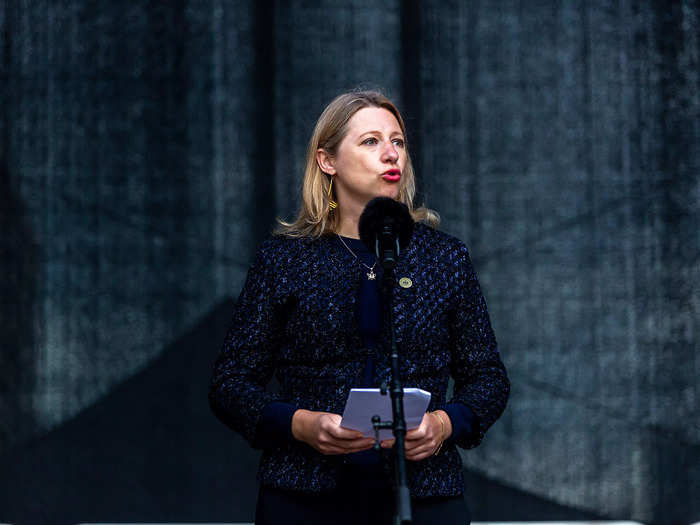
She said Christiania wasn't going anywhere, but organized crime needed to be removed.
She said that it was up to the commune's residents to make a decision.
She called on them to "make it clear" they wanted Pusher Street gone. Once they did the authorities would work to make sure that it happened.
Sources: Guardian
Popular Right Now
Popular Keywords
Advertisement